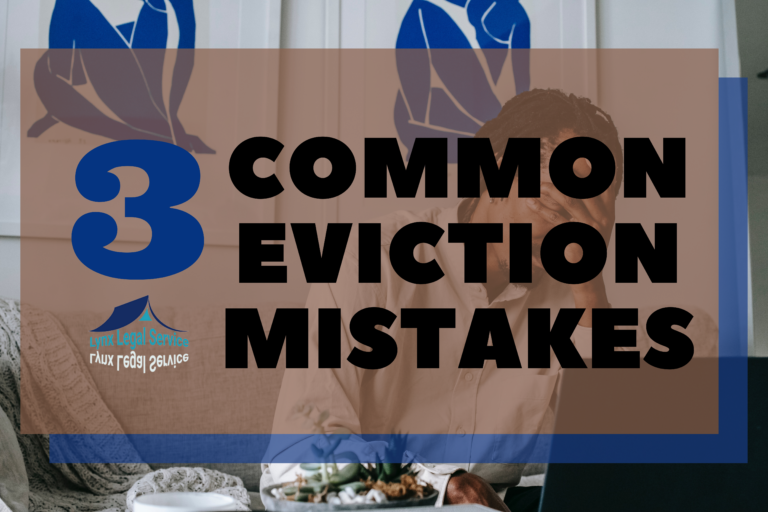Basic Rights of Tenants with Disabilities
California landlords need to be aware of state and federal disability rights laws which impose legal obligations on landlords when renting to persons with disabilities. This article provides an overview of the major issues implicated by applying those laws to the landlord-tenant relationship.
What is Considered a Disability?
“Disability” is defined broadly under state and federal laws. For example, under the Americans with Disabilities Act (ADA), “a person must have a physical or mental disability that substantially limits one or more major life activities” to be qualified. This may include visual, hearing or mobility impairment, as well as various mental illnesses and disabilities.
“Reasonable Accommodations” Required for Persons with Disabilities
Persons with disabilities can request that landlords provide a “reasonable accommodation” for that person. Under the ADA “reasonable accommodations for tenants with disabilities requires “a change in the rules, policies, practices, or services [of a housing provider], when such accommodations may be necessary to afford a handicapped person equal opportunity to use and enjoy a dwelling unit, including public and common use areas.”
The Fair Employment Housing Act enables a tenant with a disability to request a reasonable accommodation so that person can use and enjoy housing in a way that is equal to a person without a disability. See also Cal. Gov’t. Code § 12927. Where a request for accommodation is made, housing providers’ “rules, policies, practices, or services” must be bent, altered, or waived when necessary to accommodate a person with a disability. Id. at § 12927(c)(1).
For example, a federally subsidized landlord was required to provide parking to physically challenged tenants where the impact on the landlord was insignificant. Shapiro v. Cadman Towers, Inc., 51 F.3d 328 (2nd Cir. 1995). Another common example is the allowance of service animals (discussed below) when animals would not otherwise be permitted.
Typically, the landlord is responsible for making “reasonable accommodations” for someone with a disability. However, the landlord is under no obligation to take on undue financial hardship to comply with the ADA.
Assistance Animals
Both state and federal laws provide people with disabilities the right to have an assistance animal in housing. (Cal. Code Regs., tit. 2, § 12185; Civ. Code, § 54.1, subd. (b)(6); 28 C.F.R. §§ 35.136, 36.302(c); see also Gov. Code, § 12927, subd. (c)(1).) This includes “service animals” and “emotional support animals.” A “service animal” is trained to do a task that helps a person with a disability. (Cal. Code Regs., tit. 2, § 12005,subd. (d)(1); 28 C.F.R. §§ 35.104, 35.136, 36.104, 36.302(c). An “emotional support animal” is an animal whose mere presence provides comfort or support to a person with a disability. Unlike a service animal that performs a trained task, an emotional support animal does not need to be trained, nor does it need to be registered or certified. (Cal. Code Regs., tit. 2, §§ 12005, subd. (d)(2), 12185, subd. (c).)
State law permits housing providers to set reasonable restrictions for assistance animals. Some permitted restrictions include requiring the assistance animal be kept under the owner’s control, requiring disposal of animal waste, and requiring the owner to prevent nuisance behavior. (Cal. Code Regs., tit. 2, § 12185, subd. (d)(6); 28 C.F.R. §§ 35.136(b)-(d), 36.302(c)(2)-(4).)
A housing provider cannot require a pet fee, additional rent, or other additional fee, including additional security deposit or liability insurance, for an assistance animal. (Cal. Code Regs., tit. 2, § 12185, subd. (d)(2).) But an individual with an assistance animal may be required to cover repair costs for damage the animal causes to the premises, beyond ordinary wear and tear. (Cal. Code Regs., tit. 2, § 12185, subd. (d)(3).)
Scope of Relief for Disability Rights Violations
An aggrieved individual has the right to file complaints with a government agency or in court. Recoverable damages include actual damages, consequential damages, statutory penalties, attorney fees/costs, punitive damages and injunctive relief.
Please contact Lynx Legal with any questions regarding the above, and for all of your eviction needs. We can be reached at 888-441-2355 or info@lynxlegal.com. Our experienced staff is standing by to assist in any way we can.

